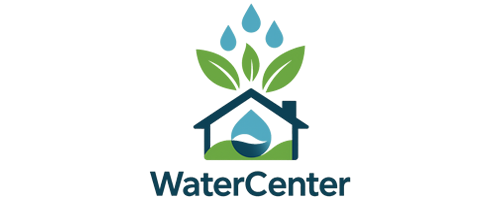Beyond Code: Career and Productivity Books for Developers
Beyond Code: Career and Productivity Books for Developers are like superpowers hidden on the shelves. I myself always thought the only book I needed was the one that taught me how to keep the pizza cool while I code! But the truth is, to read can transform my career faster than a browser refresh. Get ready to dive into how books can be the best friends of a programmer, boosting productivity and taking us out of our comfort zone, all with a touch of humor!
Books that Transform Developers' Careers
The Importance of Reading in Technology
When I started my journey as a developer, reading wasn't exactly my favorite activity. I preferred to spend hours coding, thinking that was all I needed. But guess what? Reading is just as important as knowing how to code! It's like trying to bake a cake without a recipe—something might turn out well, but it probably won't be one of my favorites.
You books are like maps in a world full of codes and languages. They helped me understand the complexities development and connect me with the best market practices. Reading about technology not only gave me valuable tips but also made me realize I wasn't alone on this crazy journey.
How Books Can Change Your Career Path
If you think books are just for nerds, think again! They can be the little push What you need to take your career to the next level. When I read my first book on productivity, I realized I could be more efficient with my time. Not only that, but I also learned how to deal with deadlines and how to avoid procrastination (my old friend).
Here are some ways books have changed my trajectory:
- New skills: I learned about new languages and techniques that I never would have discovered just by coding.
- Networking: Many books include stories of great developers and their experiences. This helped me understand how they think and act.
- Inspiration: Sometimes all we need is a little motivation. A good book can be the spark that ignites the flame of creativity.
Books Every Developer Should Read
Now that I've made it clear how important reading is, here's a list of books that I consider essential for any developer:
| Title | Author | What I Learned |
|---|---|---|
| Clean Code | Robert C. Martin | The importance of writing clean and readable code. |
| The Pragmatic Programmer | Andrew Hunt and David Thomas | Practical tips to be a more efficient programmer. |
| Deep Work | Cal Newport | How to focus on important tasks and avoid distractions. |
| Refactoring | Martin Fowler | Techniques to improve code without changing its behavior. |
These books have changed the way I view programming and productivity. They are like my travel guide on a journey full of challenges and learning.
Productivity Tips for Programmers
Time Management Techniques for Coders
Ah, the time management! For me, it's like trying to tame a cat: you think you have everything under control, and suddenly, it decides the window is more interesting. One technique that always helps me is Pomodoro TechniqueIt works like this: I work for 25 minutes and then take a 5-minute break. It's like giving my brain a breather. And, believe me, those 5 minutes are sacred! I take advantage of them to grab a snack or even dance a little.
Another strategy I use is the “Time Blocking” methodBasically, I divide my day into blocks of time for different tasks. For example, I might dedicate one hour to coding and another to answering emails. This helps me avoid the trap of jumping from one task to another, like a bee searching for flowers.
Tools that Increase My Productivity
Now, let's talk about the tools that are like superpowers in my programming journey. Here are some that are always in my "toolbox":
| Tool | Description |
|---|---|
| Trello | To organize tasks and projects. |
| Slack | For quick communication with the team. |
| Notion | For notes and documentation. |
| Visual Studio Code | My favorite code editor! |
These tools help keep everything organized and make me feel like I'm in control, even when the code feels like a maze.
How to Organize My Work Day
Organizing my day is like putting together a puzzle. Sometimes the pieces don't fit, but with a little patience, everything becomes clear. I usually start the day by defining my prioritiesI make a to-do list and then choose the most important ones for the day. It's like choosing what to eat for breakfast: you don't want to start the day with a heavy meal, right?
Also, I like to use a timer. It helps me stay focused and keeps me from getting lost on social media (hi, Instagram!). And, of course, I don't forget to include breaks. A tired programmer is not a productive programmer!
Personal Development for Developers
The Need for Professional Growth in IT
Ah, the life of a developer! It's like trying to put together a puzzle with pieces that shift all the time. Every day is a new adventure, and if I'm not growing professionally, I'm basically wasting my time. The technology moves faster than I can eat my breakfast! So how do I keep up with that speed? Well, the answer is simple: continuous growth.
Always learning is essential. You can't stay stuck in the same place. And I learned this the hard way, like when I tried to use a framework I wasn't familiar with... and ended up breaking everything! The moral of the story? Never underestimate the power of a good online course or a book that can take you to new heights.
Inspiring Career Books for Developers
Let's talk about books. Ah, books! They're like superheroes for my career. I always say that if you're not reading, you're wasting your time. Here's a list of some books that changed my life (or at least helped me stay on track):
| Book Title | Why I recommend it |
|---|---|
| “The Art of Making Things Happen” | I learned to be more productive and organize my time. |
| “Clean Code” | It taught me how to write code that doesn't make my brain scream! |
| “The Phoenix Project” | A fun look at DevOps and the importance of collaboration. |
| “Deep Work” | It helps you focus and avoid distractions like those on TikTok! |
These books are like treasure maps for developers. They've guided me down paths I never knew existed! Plus, whenever someone asks me for recommendations, I feel like a career consultantIt's like I have a degree in "life-changing books."
How to Invest in Myself
Now, let's talk about the most important investment: myself! This may sound selfish, but it's not. Investing in myself means I can be better at my job and, in the process, help others too. Here are some tips I use:
- Online Courses: Whenever I see a course that interests me, I don't think twice. It's like buying a delicious snack, except it feeds the mind!
- Networking: Knowing people in the field is like having a support team. You never know when you'll need a helping hand (or a valuable tip).
- MentoringHaving a mentor is like having a GPS on your career path. They've been where I am and can guide me through the winding paths.
Investing in myself is one of the best decisions I've ever made. It's like putting gas in a car: without it, I'm not going anywhere!
Beyond Codes: Books on Productivity
What Are Productivity Books?
Books about productivity They're like that friend who always has a solution for everything. They teach you how to do more in less time, how to get organized, and how to avoid letting life get the best of you. Basically, they're guides who promise to transform your routine from chaos into a symphony of efficiency. And the best part? You don't need to be a marketing genius to understand!
How They Can Help My Routine
These books could be yours GPS on the road of life. They help to:
- Organize tasks: No more endless lists that read more like a novel!
- Set priorities: I learned that not everything is urgent, and that some things can wait (like washing the dishes).
- Avoid distractions: The internet is full of cool stuff, but also kittens and videos of people falling. Let's focus!
When I started reading about productivity, I realized my routine had more holes than Swiss cheese. Now, I can get more done in less time and still have time to binge-watch that series I've been meaning to watch!
The Best Titles I've Read
Here are some of the books that have truly made a difference in my life. They're like that strong cup of coffee that gives you a boost to start your day:
| Title | Author | Why do I recommend it? |
|---|---|---|
| “The Art of Making Things Happen” | David Allen | Teaches you how to organize tasks like a ninja! |
| “Essentialism” | Greg McKeown | Focus on what really matters. |
| “The Power of Habit” | Charles Duhigg | Shows how habits shape our lives. |
These books are like a treasure map to productivity. They can help you find your way and, who knows, maybe even discover some gold nuggets along the way!
The Technology Career and Its Challenges
The Challenges I Face on My Journey
Ah, a career in technology! It's like a giant amusement park, full of thrilling roller coasters and some unexpected drops. One of the biggest challenges I face is keep me updatedEvery day, a new programming language or tool emerges that promises to be the magic solution to every problem. It's like trying to catch a bus that never arrives.
Plus, there's the pressure to deliver projects on time. I remember once staying up all night trying to fix a bug that, for some reason, decided to hide like a ninja. In the end, I discovered it was just a misplaced semicolon. Ah, the irony!
How to Overcome Obstacles in My Career
Overcoming obstacles is part of the game. One of my favorite strategies is take a break. Yes, that's right! Sometimes all you need is a good cup of coffee and some fresh air. When I feel stuck, I take a walk around the block. Believe me, it does wonders for my productivity.
Another tip is connect with other professionalsParticipating in discussion groups or online forums helps me see that I'm not alone on this rollercoaster. And who knows, I might even meet someone who's been through the same thing and can shed some light on the matter!
Strategies for Navigating the IT Industry
Here are some strategies I use to stay afloat in the IT industry:
| Strategy | Description |
|---|---|
| Networking | Meeting new people can open doors! |
| Online Courses | Learning something new is always good! |
| Mentoring | A mentor can be like a GPS on your journey. |
| To practice | Practice makes perfect (or almost!). |
These strategies help me not only survive, but thrive. And remember: don't be afraid to ask for help. Sometimes the solution is just one question away.
Essential Reading for Developers
Books That Helped Me Grow
Ah, the books! These paper friends who accompanied me through so many sleepless nights, trying to understand why my code wasn't working. If you're like me, who loves learning from stories and experiences, here are some books that helped me grow in my journey as a developer.
- “Clean Code” by Robert C. Martin: This book is like a instruction manual to write code that doesn't make you want to pull your hair out. He taught me the importance of keeping everything clean and organized.
- “The Pragmatic Programmer” by Andrew Hunt and David Thomas: A true classic! This book gave me valuable tips to be more efficient and practical in my work.
- “You Don't Know JS” by Kyle Simpson: If you want to truly understand JavaScript, this is the way to go. It made me see JavaScript as a person, not just a set of code.
How to Choose the Right Book for Me
Choosing a book can be as tricky as finding a bug in your code. Here are some tips I use:
- Identify your needs: Ask yourself: What do I want to learn? If you're lost, choose a book that covers the fundamentals.
- Read reviews: Don't just rely on the catchy title. Other readers' opinions can be a great guide.
- Try a sample: Many books have chapters available online. Check them out before you buy!
My Must-Read List
| Title | Author | Why read? |
|---|---|---|
| Clean Code | Robert C. Martin | To write code that makes sense. |
| The Pragmatic Programmer | Andrew Hunt, David Thomas | Practical tips for everyday life. |
| You Don't Know JS | Kyle Simpson | To understand JavaScript like never before. |
| The Pragmatic Programmer | Andrew Hunt, David Thomas | A guide to the developer's life. |
| Refactoring | Martin Fowler | To learn how to improve your code. |







